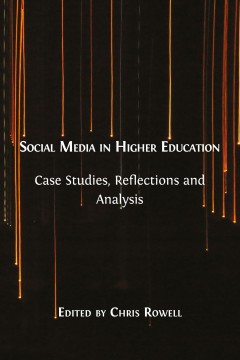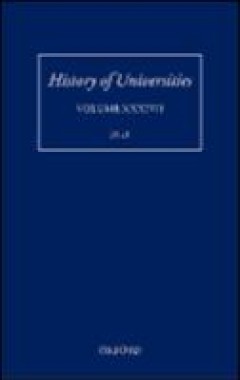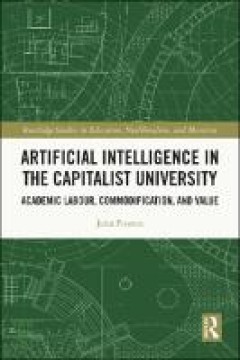Filter by
# Debug Box
/var/www/htdocs/pustaka-digital/lib/SearchEngine/SearchBiblioEngine.php:688 "Search Engine Debug 🔎 🪲"
Engine Type ⚙️: "SLiMS\SearchEngine\SearchBiblioEngine"
SQL ⚙️: array:2 [ "count" => "select count(sb.biblio_id) from search_biblio as sb where sb.opac_hide=0 and ((match (sb.topic) against (:subject in boolean mode)))" "query" => "select sb.biblio_id, sb.title, sb.author, sb.topic, sb.image, sb.isbn_issn, sb.publisher, sb.publish_place, sb.publish_year, sb.labels, sb.input_date, sb.edition, sb.collation, sb.series_title, sb.call_number from search_biblio as sb where sb.opac_hide=0 and ((match (sb.topic) against (:subject in boolean mode))) order by sb.last_update desc limit 10 offset 10" ]
Bind Value ⚒️: array:1 [ ":subject" => "'+\"Education, Higher\"'" ]

Uprooting Bias in the Academy : Lessons from the Field
This open access book analyzes barriers to inclusion in academia and details ways to create a more diverse, inclusive environment. It first describes what the barriers to inclusion are and how they function within the broader society, focusing on concept of implicit bias: what it is, how it develops, and the importance of training organizational members to recognize and challenge it. It then di…
- Edition
- -
- ISBN/ISSN
- 9783030856687
- Collation
- 255 p ; ill
- Series Title
- -
- Call Number
- 379.26 UPR L

Peer review in an Era of Evaluation : Understanding the Practice of Gatekeepi…
This open access volume explores peer review in the scientific community and academia. While peer review is as old as modern science itself, recent changes in the evaluation culture of higher education systems have increased the use of peer review, and its purposes, forms and functions have become more diversified. This book put together a comprehensive set of conceptual and empirical contribut…
- Edition
- -
- ISBN/ISSN
- 9783030752637
- Collation
- 412 p ; ill
- Series Title
- -
- Call Number
- 001.4 PEE E

Social media in higher education : case studies, reflections and analysis
"How does social media affect working life in Higher Education? How are universities harnessing its power to aid student learning? This innovative collection brings together academics and those working in professional services to examine these questions and more. The diverse and expert contributors analyse the many ways social media can be used to enhance teaching and learning, research, profes…
- Edition
- 7
- ISBN/ISSN
- 9781783746705
- Collation
- xix, 279 p.: illus
- Series Title
- -
- Call Number
- 378.17344678 CHR s

Opening up the University : teaching and learning with refugees
Contributor(s) Cantat, Celine (editor) Cook, Ian (editor) Rajaram, Prem Kumar (editor) Collection Knowledge Unlatched (KU) Language English Show full item record Through a series of empirically and theoretically informed reflections, Opening Up the University offers insights into the process of setting up and running programs that cater to displaced students. Including contributions …
- Edition
- volume 5
- ISBN/ISSN
- 9781800733138
- Collation
- XII, 310 p.
- Series Title
- -
- Call Number
- 371.826914 OPE o

The research university in today's society
In this topical lecture, investor and philanthropist Gerald Chan examines the role of philanthropy in the rapidly changing higher education environment. He proposes that society will be short-changed if the purpose of universities is seen as human resource rather than humanity. Dr Chan argues that the independence of universities is crucial for maintaining the balance between their dual role as…
- Edition
- -
- ISBN/ISSN
- 9781911307600
- Collation
- 28p. : ill.
- Series Title
- -
- Call Number
- 371.206 CHA r

A global history of research education : disciplines, institutions, and natio…
This book’s chapters contain a mix of analysis and discussion looking in depth at the history of higher education. This text presents a global history of research education in the nineteenth and twentieth centuries. Chapters cover topics such as how disciplines are formed and research training, the rise of academic laboratory science, research mathematicians circa 1900 and research training i…
- Edition
- -
- ISBN/ISSN
- 9780192844774
- Collation
- IX, 387 p.
- Series Title
- History of Universities
- Call Number
- 378.009 GLO g
Critical Thinking in Higher Education and Labour Market
This book presents the comprehensive investigation of critical thinking in higher education from the perspectives of the study and labor market. It looks for an answer to the vibrant question of what and to whom critical thinking is. The study brings together findings from systematic literature review, analysis of descriptions of higher education study programs and study subjects, phenomenograp…
- Edition
- Vol. 86
- ISBN/ISSN
- 9783631861479
- Collation
- 524 p.
- Series Title
- Erziehungskonzeptionen und Praxis, 86
- Call Number
- 153.4 IND c

Relationality and Learning in Oceania : Contextualizing Education for Develop…
Relationality and Learning in Oceania: Contextualizing Education for Development critically engages debates in comparative education and international development relating to context, culture, language and indigenous epistemologies. It draws on experiences of a south-north research-practice team in Solomon Islands and Tonga.; Readership: All interested in comparative education and international…
- Edition
- -
- ISBN/ISSN
- 9789004425316
- Collation
- 188p. ; ill.
- Series Title
- Comparative and International Education: Diversity of Voices, 18
- Call Number
- 372.95 SEU r

Artificial intelligence in the Capitalist University : academic labour, commo…
Using Marxist critique, this book explores manifestations of Artificial Intelligence (AI) in Higher Education and demonstrates how it contributes to the functioning and existence of the capitalist university. Challenging the idea that AI is a break from previous capitalist technologies, the book offers nuanced examination of the impacts of AI on the control and regulation of academic work and l…
- Edition
- -
- ISBN/ISSN
- 9781003081654
- Collation
- VII, 173 p.
- Series Title
- Routledge Studies in Education, Neoliberalism, and Marxism,
- Call Number
- 378.17344678 PRE a

The promise of higher education : essays in honour of 70 years of IAU
This book is a collection of short essays, accessible through open access, which takes the interested reader on a tour across the global higher education landscape. It addresses pertinent themes and challenges in higher education. To mark the 70th anniversary of the International Association of Universities (IAU) and its role in higher education since 1950, experts from around the world share t…
- Edition
- -
- ISBN/ISSN
- 9783030672454
- Collation
- ix, 439 p.
- Series Title
- -
- Call Number
- 378 VAN t
 Computer Science, Information & General Works
Computer Science, Information & General Works  Philosophy & Psychology
Philosophy & Psychology  Religion
Religion  Social Sciences
Social Sciences  Language
Language  Pure Science
Pure Science  Applied Sciences
Applied Sciences  Art & Recreation
Art & Recreation  Literature
Literature  History & Geography
History & Geography